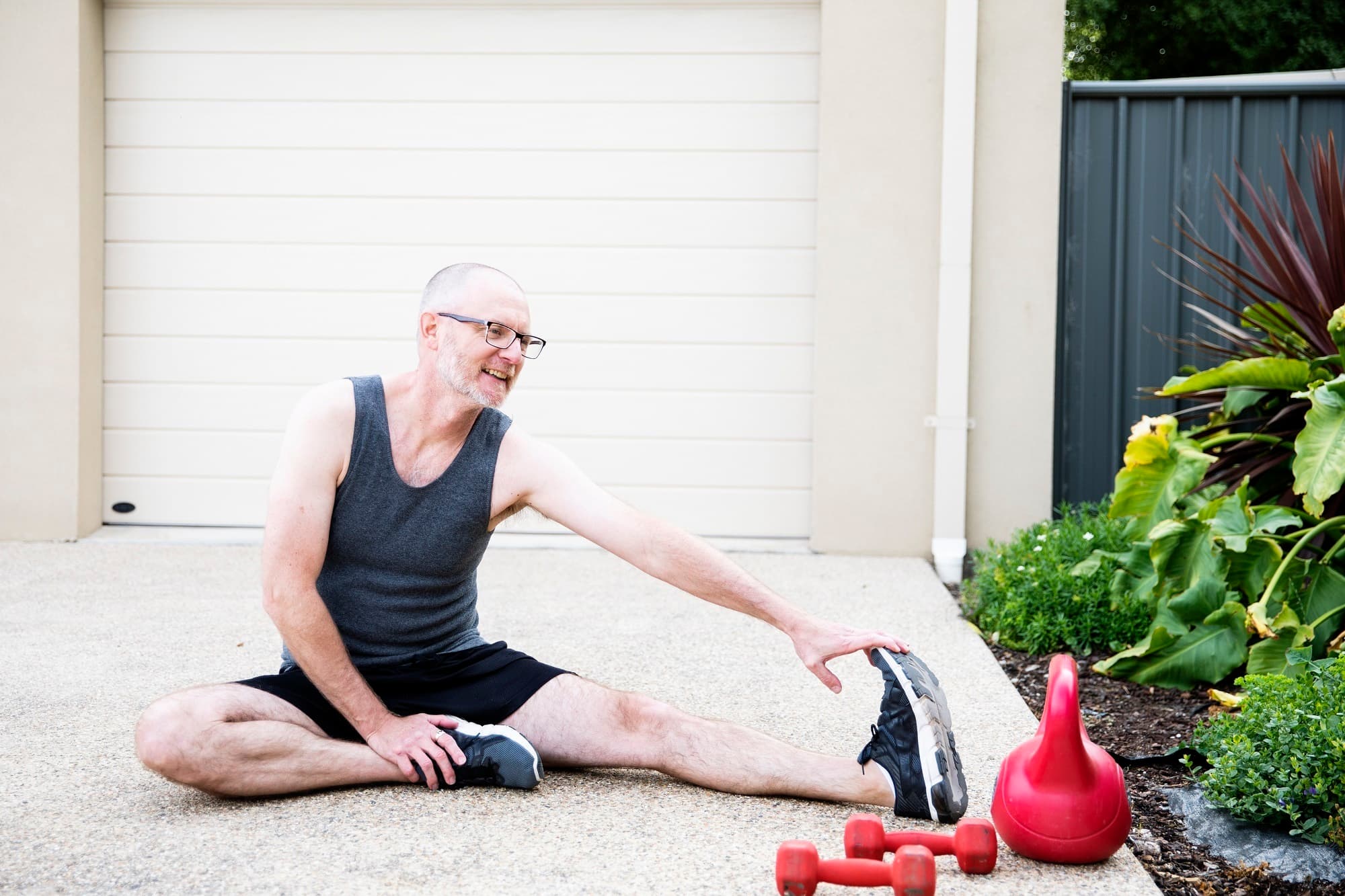Regular exercise is a healthy habit that benefits physical and mental wellbeing. It’s also an effective way to manage symptoms of multiple sclerosis (MS) and other neurological conditions.
Creating a fitness regimen that works for your current symptoms and mobility level can be a challenge on your own. Our experienced exercise physiologists have a deep understanding of neuro conditions and can help you safely push your boundaries. We will work with you to develop the best possible exercise regimen to meet your needs.
Here’s an overview of how exercise physiology can help you improve your overall wellbeing:

Cardiovascular health
- Improves heart rate and blood flow
- Our exercise physiologists specialise in tailoring exercises to meet your goals and can gradually increase intensity and duration.
- Low-impact aerobic exercises, such as walking or hydrotherapy are beneficial.

Muscle responses
- Strength training and stretching exercises address muscle weakness and spasticity.
- Resistance exercises, performed with proper technique and progressive overload, can enhance muscle strength.
- Flexibility exercises, such as dynamic or static stretching can improve range of motion and reduce muscle tightness.

Neurological adaptations
- Exercise to enhance neural plasticity and improve motor function, balance, and coordination.
- Exercise prescriptions address individual needs such as improvements in motor skills, balance, and coordination.
- Functional exercises that mimic daily activities can be effective in improving independence and quality of life.
- Incorporating balance and coordination drills, as well as cognitive-motor tasks, to help improve overall functional performance.

Fatigue Management
- Promotes adaptation and progression.
- Low-intensity and moderate-intensity exercises
- Attention to individual tolerance informing eventual progression.

Heat Sensitivity
- Increases cardiovascular and muscular efficiency
- Help manage heat sensitivity
What are the goals of neuro exercise physiology?
The mains goals of neuro exercise are to:
- Maintain mobility and independence
- Manage symptoms including spasticity, stiffness, pain and anxiety
- Improve strength
- Improve sleep and mental health

What does an exercise physiology program include?
- Visiting the gym to use specialist equipment to build strength safely without worrying about falls
- A home visit for a one-on-one exercise session
- A home visit to train a carer/family member so they can help you exercise at home when it’s convenient for you
- Help to apply for equipment to increase independence in exercising
- A virtual group exercise program to help you enjoy community and social interaction from the convenience of your own home

What does exercise physiology involve?
Assessment and individualisation
Conducting thorough assessments of an individual's physical condition, taking into account neurological symptoms, mobility restrictions and overall health.
Personalised exercise programs
Creating customised exercise regimens that align with the individual's abilities, addressing specific neurological challenges and promoting overall wellbeing.
Specialised equipment usage
Recommending and incorporating the use of specialised equipment, such as neuro-specialised gym tools, to facilitate safe and effective strength training.
Home based programs
Offering one-on-one home visits to provide personalised exercise sessions or training for caregivers/family members, ensuring exercises can be incorporated into daily life.
Virtual group programs
Facilitating virtual group exercise programs to promote community engagement and social interaction, allowing individuals to participate from the comfort of their homes.
Goal oriented group sessions
Conducting group sessions like Boxingopens in new tab, Hydroopens in new tab, Pilatesopens in new tab, and Flex and Flowopens in new tab, where individuals can work collectively towards their fitness goals while fostering a sense of community.
How do I get started?
Our Exercise Physiologists are waiting to see you. Contact us today.
Fill in the form below or if you prefer, get in touch with our team on 1800 042 138. Let us know what you need because we are here to help you in any way we can.



